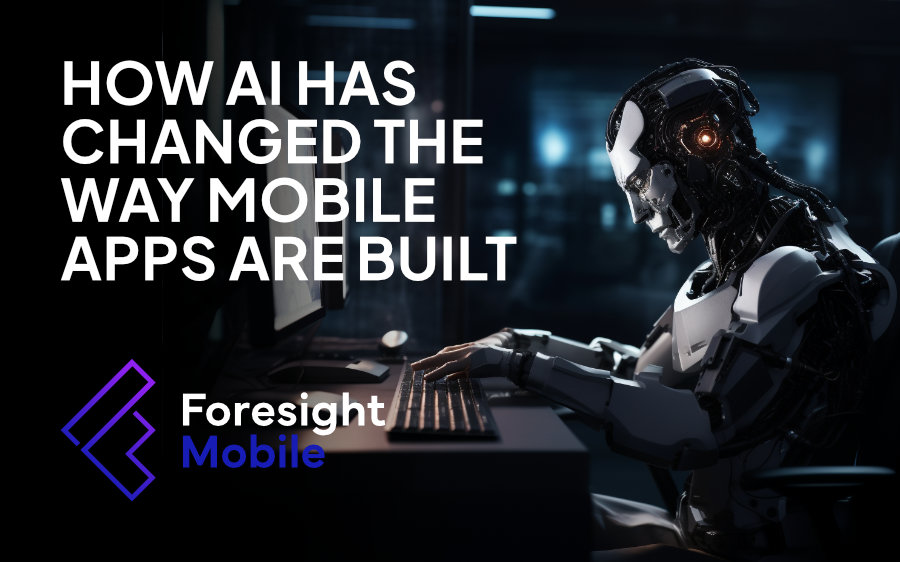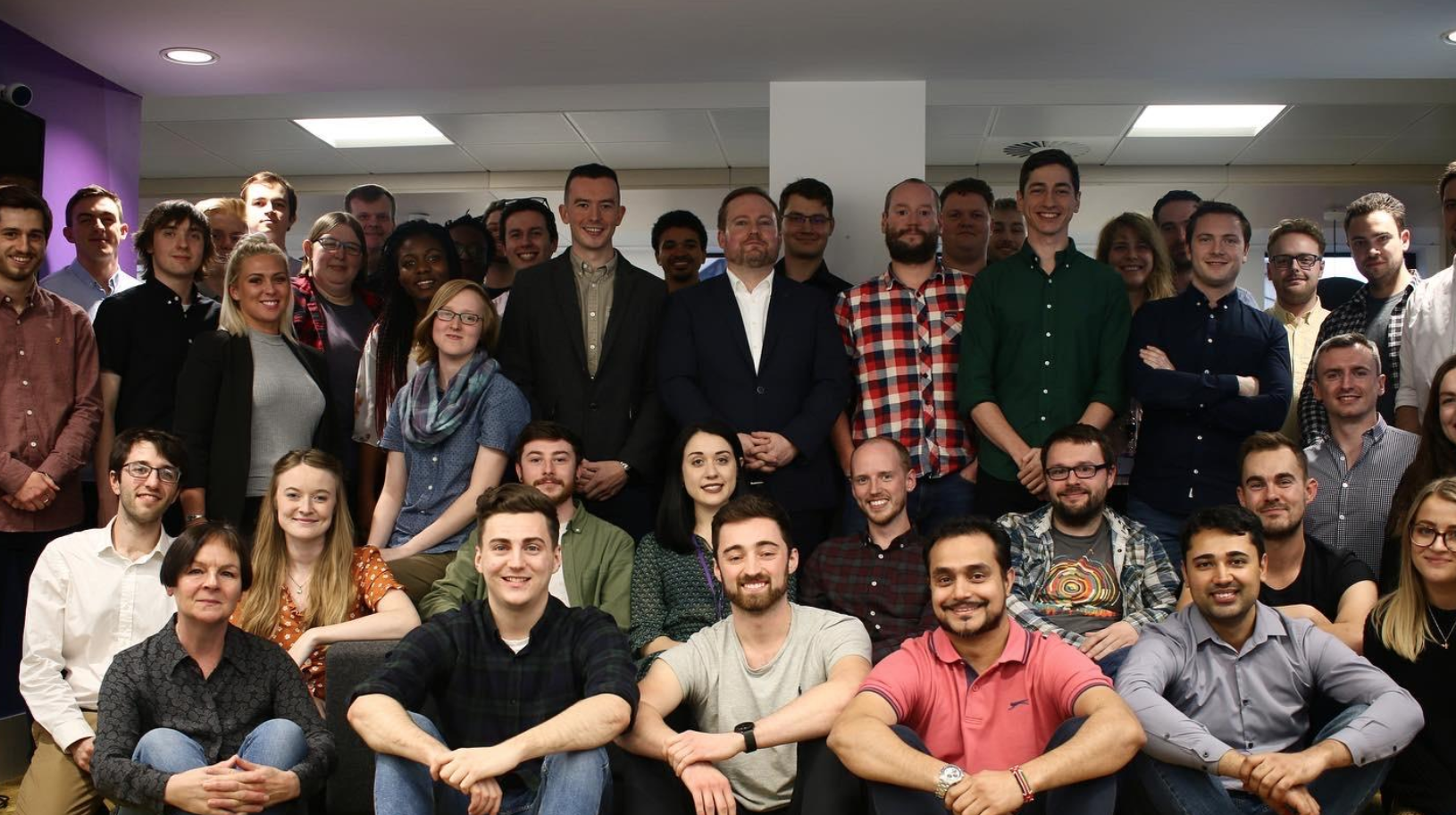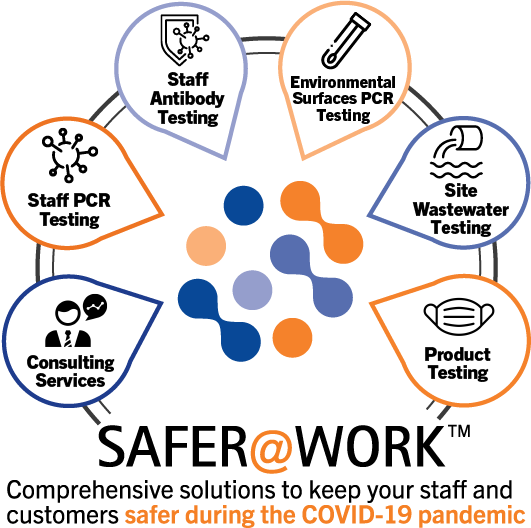
AI is everywhere. Perhaps inevitably, it’s become very prominent in the way that mobile apps are built and then used, so we thought we’d give you a sneak peek behind the curtain into how AI has changed the way mobile apps are built.
How AI is revolutionising mobile app development
As an app developer, I’ve seen firsthand how much AI has changed the game over the past decade. From personalised user experiences and predictive analytics to generating realistic graphics and animations and truly interactive experiences like augmented and virtual reality, AI is now woven so seamlessly into the process of app building that you’ll struggle to find an app that doesn’t incorporate some form of it.
But it's not just me who thinks this. Let's get the opinions of a couple of guys that you might have heard of…
What do our tech overlords think about the rise of AI?
The three biggest names in tech all have varying opinions about AI. In fact, it’s much like the story of Goldilocks and the Three Bears. One thinks it’s dangerous, one thinks it's the best thing since sliced bread, and the other thinks it’s juuuust right.
Everyone’s favourite billionaire pantomime villain, Elon Musk, had this to say about the rise of AI:
“Nobody likes being regulated, but everything (cars, planes, food, drugs, etc) that’s a danger to the public is regulated. AI should be too.”
Source: X (formerly Twitter)
Meta alien Mark Zuckerberg, meanwhile, is more upbeat, saying that the source codes should be freely available:
“Open source drives innovation because it enables many more developers to build with new technology. It also improves safety and security because when software is open, more people can scrutinize it to identify and fix potential issues.”
Source: Vox.com
Finally, once-cool Bill Gates is far more optimistic than his billionaire brethren:
“I believe there are more reasons than not to be optimistic that we can manage the risks of AI while maximizing their benefits.”
Source: CMSWire
AI domination
To give you an idea of how dominant AI has become in app building, here are a few stats:
• In 2022 alone, the AI app sector generated a seriously impressive $2.5 billion, and that figure is projected to increase 38.3% by 2028
• The highest-grossing AI app last year was FaceApp, raking in a cool $100 million
• Over 660 million people use Siri every month
• Apple has the biggest market share of voice-assisted apps (36%)
(Source: Business of Apps)
What does all this mean in a real-world scenario?
So now that we’ve heard from the tech big shots and you’ve seen how much money is involved, let me give you a more practical look from my point of view as an app developer and how that informs your experience of that app as a user.
Sound good?
Let’s get into it.
Personalised user experiences
By including AI that analyses user data, an app can learn about its users' preferences and interests. This is then used to personalise the app's content, features, and recommendations. Here’s a real-world example for you:
Have you ever experienced that thing where you’ve been talking about something really random with your mates - let’s say, hats for frogs - and then you go on Facebook and marvel at how coincidental it is that an ad for frog hats has just popped up on your feed?
Sorry to burst your magic bubble, but coincidence has nothing to do with it; that’s AI using things such as your past browsing history, the topics you follow on social media, and the location you’re in to show you that ad. Clever, eh?
Predictive analytics
AI can also be used to predict future user behaviour, which is then used to improve the app's performance and user experience.
Here’s an example. Imagine I can offer my clients two identical retail apps; one includes an AI function that predicts and learns which products users are likely to buy the more they use it, and the other one doesn't. Which one do you think will convert more customers?
You see, by using AI to tap into things like past purchase history and browsing behaviour to make these product predictions, I can make an app that will not only make my client more money but also provide a more pleasurable user experience for you. How? By recommending more of the products you might like, improving the app's search results, and targeting you with more relevant ads. It’s a win-win for everyone.
Human-like speaking
AI is allowing me to create apps with interfaces that are truly interactive on a 1:1 basis for the first time, making interactions smoother and more natural.
Example time!
“Hey, Siri/Alexa/Google/Bixby/Cortana, who played Quint in the film Jaws?*”
Here’s another:
“Hi, how can I help you today? Please give a brief description of why you're contacting us so I can put you through to the right person.”
These human-like speaking interfaces mean that users can interact with the app using natural language and get a natural response back, whether you're typing or speaking to them. It also gives us, as app developers, the means to tap into Siri or Hey Google and allow the user to open your app and its content using their voice.
(* The answer was Robert Shaw)
Solving behind-the-scenes problems
AI can help app developers like me save time and resources by speeding up tasks such as generating unit test code and prototyping some of an app’s functionality. This allows us to iterate quickly and produce a comprehensive test suite, saving time and simplifying maintenance for our customers.
It’s also used to improve the accuracy and reliability of the apps that I build by optimising the user experience, detecting fraud, and refining their overall performance.
What that means for you as an app user is a smoother, more secure, and more efficient app user experience - and if the AI does its job properly, you’ll never give it a second's thought or realise that it's even there.
Improved accessibility for people with disabilities
All the above examples show you how AI can make my life a bit easier when I’m building an app, but perhaps the most rewarding app to build is one where AI lets me help make mobile apps more accessible to people with disabilities. For example, I can use AI to:
• Provide text-to-speech for visually impaired users
• Translate the app's interface into different languages
• Simplify the app's controls for users with motor impairments
As scary as AI can sound sometimes, more developments like this can only be a good thing, right?
If these examples have intrigued you and you'd like further examples of how AI can be deployed in your mobile app, then take a look at this LinkedIn article or speak to my team for more information.
The future of AI in mobile app development
I can see some of the potential future uses of AI in mobile app development; apps that can interact with the physical world, such as self-driving cars; apps that can diagnose and treat medical conditions; and apps that can provide personalised education and training.
I’m also experimenting with generative AI and how users can interact with it in a more engaging way. A list of e.g., holiday destination suggestions is easy to create with GPT, but bringing them to life on an animated globe is much more likely to capture the imagination of the consumer.
The use of AI in mobile app development is still in its early stages, but it’s rapidly growing - and I expect my job to keep getting more and more exciting.
If you’d like to know more about the possibilities that AI can bring to your app or website, then get in touch and speak to me or any member of my team. I think you’ll be shocked at just how advanced the app we can build for you could be.








